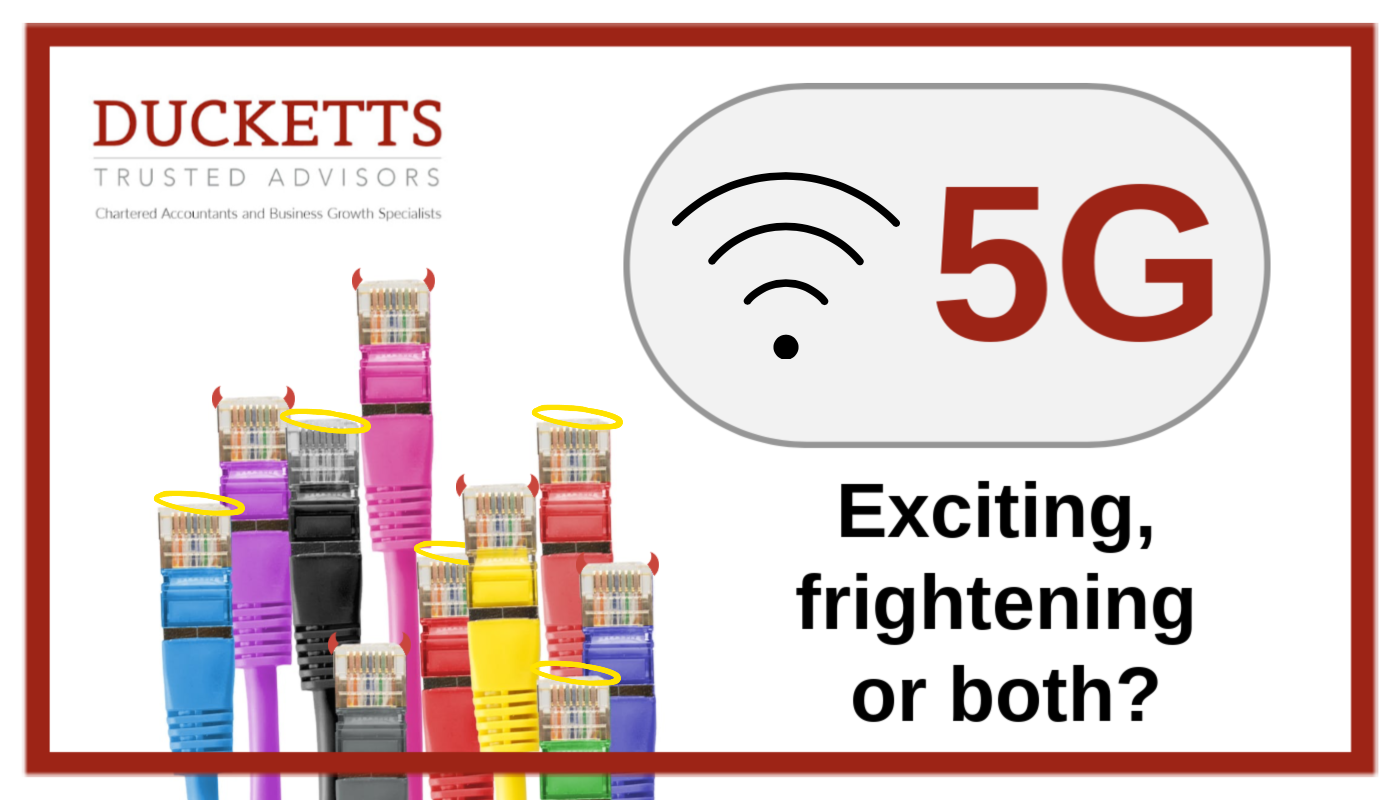5G What does it mean for businesses?
Published:

I was fortunate to attend Harrison Clark Rickerbys Big Techie Brekkie event recently. The presentation centred on the potential of 5G and the possible benefits (and risks) it might bring.
The event featured a panel of Damon Rands (Wolfberry CS), Fiona Percy (Head of the 5G team at Worcester LEP), Linda Smith (CEO of Betaden) and keynote speaker Vin Wijeratne, formerly of Royal Mint, Orange & EE.
Here is my summary of the main points from the morning which comprised of a presentation, round table discussion and a Q&A session.
5G will be significantly faster, more efficient and with greater capacity than 4G. Bandwidth is expected to increase from 15 MB per second to 1 GB per second.
The Possible Longer-Term Applications of 5G
Self Driving Cars: Already legal in 29 US states including New York & Washington. Benefits include no more human error, fewer accidents and deaths, no more drink driving and greater freedom for the disabled and the elderly.
Smart Cities: Internet of Things and 5G functionality applied to city services with the aim of improving the quality and performance of urban services, including transportation, energy and utilities to reduce waste, costs and resource consumption.
Virtual/Augmented Reality: There are a number of applications in manufacturing, healthcare, fashion, marketing and travel.
Tactile Internet: For example, a surgeon could control robotic equipment to perform surgery with more precise movements than the human mind, all remotely.
Possible Downsides
Whilst clearly the rollout of 5G will bring benefits, there will undoubtedly be an impact regarding cybersecurity. There will be a greater number of endpoints, meaning more possible openings through which attackers may penetrate the network. If/when there is a compromise, openings will be able to be exploited much quicker and on a greater scale.
Damon advised that the 4G network is designed on a hub and spoke basis. This means that as traffic becomes busy the network slows down – clearly a downside. 5G will be software-led with no hub/spokes. This will mean that the speed is maintained, irrespective of spikes in traffic, but it also means that the management of the system is also lost/significantly diminished. He did point out, however, that this wouldn’t be an issue, as it is software-led and software always works first time, without any glitches!
The other main issue that Damon foresees is the fact that companies will rush out products, which are not ready or have not been properly thought through. This will lead to products not working properly/effectively and/or leading to possible security risks. The example he used was the internet-connected kettle. Nobody needed an internet-connected kettle, but some people who then bought them were having their computers hacked via the kettle.
Vin Wijeratne went through a suggested response to a cyberattack, which we will cover off in a separate blog, but which detailed a practical response, rather than just your legal/regulatory responsibilities.
Other possible downsides that have been suggested include potential health risks posed by 5G, due to its use of higher frequency radio waves, more transmitter masts and the fact that these are closer to ground level. Fiona Percy was wholly confident that the new technology would not pose any additional health risks and she stated that she is happy to work from the offices of the 5G Consortium.
A member of the audience asked what research had been/is being undertaken with regards to the effects on people’s mental health, particularly with regard to younger people. Whilst there was nothing definitive from the panel, there were some interesting responses including that children/younger people tended to watch content of shorter length and because of the amount of content available they were less likely to watch programmes as a family or indeed often not watch the same things as friends, other than shared snippets from the internet. I’ve no doubt that similar concerns were raised with the advent of television.
Like it or not 5G is coming, although according to Ofcom’s Connected Nations report in December, 9% of the UK has no good 4G coverage, with 23% of homes and businesses not having good coverage from all operators. Undoubtedly there will be benefits and some potential downsides, which will need to be managed.
Martyn Wright
